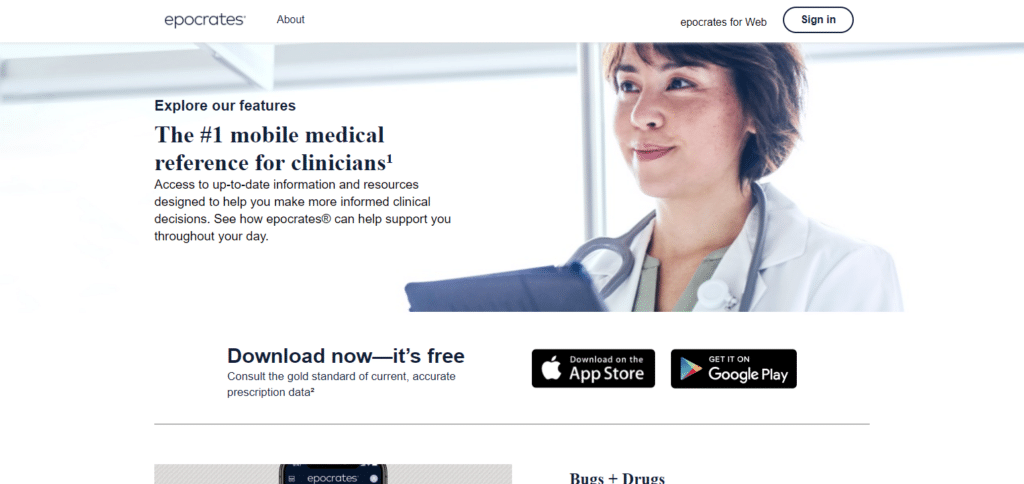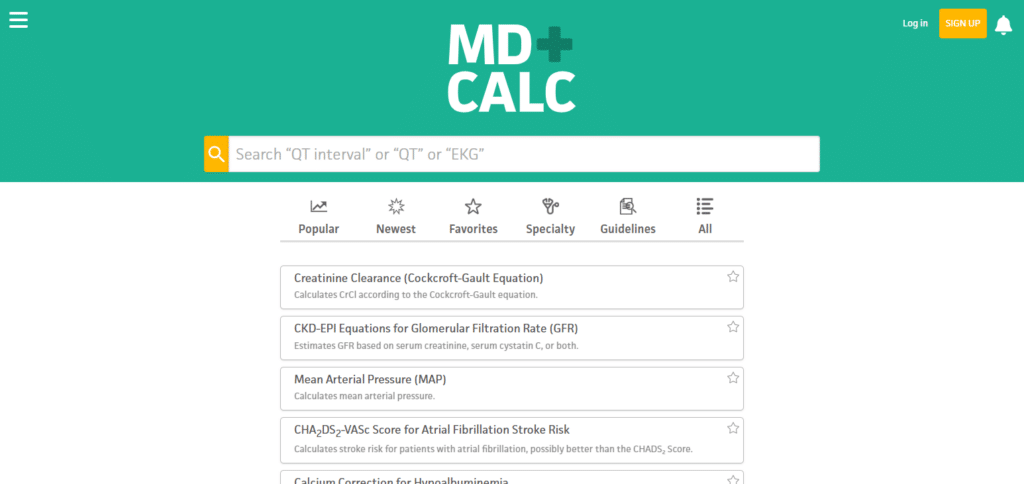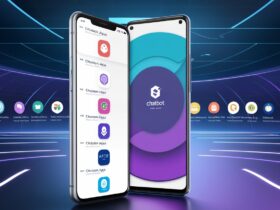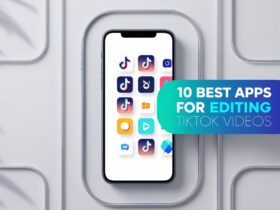The following article will discuss the top apps for nurse practitioners, underscoring fundamental tools that improve treatment.
These applications give way to essential materials like drug references, medical calculators, and clinical guidelines for nurse practitioners who want to render high-quality patient care efficiently.
Key Point & Best Apps For Nurse Practitioners List
| Resource | Key Point |
|---|---|
| DynaMed | Evidence-based clinical reference tool providing updated and peer-reviewed medical information. |
| Epocrates | Comprehensive mobile drug reference and clinical resource for healthcare professionals. |
| EMRA Antibiotic Guide | Quick reference guide for antibiotic selection and dosing in emergency medicine. |
| MDCalc | Extensive collection of medical calculators to support clinical decision-making. |
| ASCCP | Guidelines and resources for managing cervical cancer screening and precancerous lesions. |
5 Best Apps For Nurse Practitioners
1. Dynamed
Informative to nurse practitioners, DynaMed is of great value as it presents evidence-based clinical information that is reviewed thoroughly and updated frequently.
It also contains quick reference summaries on numerous medical conditions, diagnostic tests, and treatment regimens.

The app has a friendly user interface and strong search capability, thus enabling healthcare providers to quickly find relevant information, making it an essential decision-support tool at the point of care.
Furthermore, this app has functions like patient education materials, drug interactions, and a custom modulator to enhance its utility for nurse practitioners in delivering quality patient care.
Dynamed Key Features
- A clinical reference with supporting evidence.
- Content that is regularly updated.
- Medical summaries that are comprehensive.
- And a user-friendly interface.
- And personalizable medical calculators.
2. Epocrates
Epocrates is a highly esteemed app among nurse practitioners with a wide range of tools and resources that enhance clinical practice.
It is popular with many because of its wide-ranging drug reference list, where one can get relevant information on drug dosages, side effects, interactions, and contraindications.

Also available in the app are diagnostic aids, pill identifiers, medical calculators, and clinical guidelines, which make it suitable for managing patient care.
In addition to an easy-to-use user interface, Epocrates also allows offline access, which is crucial for the nurses’ quick retrieval of critical information, even in areas with poor internet connectivity.
This is for nurse practitioners seeking constantly updated medical evidence-based interventions for optimal patient outcomes.
Epocrates Key Features
- A massive drug reference database.
- A complete drug interaction checker.
- Clinical guidelines and diagnostic tools are also included.
- There is a pill identifier feature as well
- It is designed for offline use.
3. EMRA Antibiotic Guide
Nurse practitioners require the EMRA Antibiotic Guide, an indispensable application that is swift and dependable in giving antibiotic selection and dosing.
The app focuses on emergency medicine but can be used across many clinical areas with concise guidelines for treating various infections.
This covers the antimicrobial spectrum, recommended doses, side effects, and contra-indications to facilitate the choice of appropriate antibiotics.

Nurse practitioners should use this app because it’s easy to understand and its contents are current.
This incorporates a user-friendly interface that allows nurse practitioners to make rapid decisions to make fast decisions during patient care, leading to better treatment results.
It’s readily available through practicality and included in every nurse practitioner’s digital toolkit.
EMRA Antibiotic Guide Key Features
- Fast reference material on antibiotic choice.
- Completeness in dosing instructions.
- Antibacterial range details.
- Interface that is easy to operate with.
- Its contents are regularly updated.
4. MDCalc
Nurse practitioners find the MDCalc app very useful. It contains numerous medical calculators that help in clinical decision-making for various specializations.
Applying tools in risk score, dosing adjustments, and diagnostic criteria is crucial in developing precise and personalized treatment plans.

Workflow is made more efficient with the user-friendly interface that allows quick actions, which improves patient care.
All the calculations are accompanied by a more detailed explanation of their clinical use, based on evidence guidelines and references from current research, assuring nurses that they have the latest data possible, which is also reliable.
The app’s content is extensive and constantly updated, meaning it has been changed to better relate to clinical practice and improve patients’ results.
MDCalc Key Features
- A large number of medical calculators.
- Scoring systems of risk and diagnostic criteria.
- Interface that is very easy to use by the user.
- Information about how it is used in clinical practice was given in detail.
- Content is updated frequently.
5. ASCCP
The ASCCP app is a must-have tool for nurse practitioners focusing on women’s healthcare and primarily managing cervical cancer screening and treatment.
The app gives access to current guidelines regarding cervical cancer, managing abnormal cervical cancer screening tests, and colposcopy procedures.

It also contains explicit algorithms derived from the latest research findings to enable NPs to make informed decisions about patient treatment.
The application also provides education materials and risk assessment tools, and it is frequently updated, thus making it quite comprehensive and helpful in enhancing patient outcomes in gynecological practice.
So, this feature and the evidence-based information in it makes it an indispensable assistant for nurse practitioners caring about women’s health care quality.
ASCCP Key Features
- Newest Guidelines for Screening Cervical Cancer.
- Algorithms that give a detailed explanation of what actions to take.
- Tools used to evaluate the risk for the development of the disease.
- Updated in real time.
- Materials related to patient education.
How To Choose the Best Apps For Nurse Practitioners?
When it comes to choosing the top applications for nurse practitioners, several factors need to be considered to ensure that the application is suitable for professional needs and enhances patient care:
Evidence-Based Content
Choose apps that provide updated, reviewed by peers, and evidence-based information to make clinical decisions.
User-Friendly Interface
Search for apps with interfaces that are user-friendly and easy to navigate so that one can access necessary information immediately, particularly under stressful situations.
Comprehensive Features
Go for apps with various tools, including drug references, medical calculators, guidelines, and patient education materials, addressing different clinical practice areas.
Regular Updates
Ensure the app is updated regularly to follow the latest research, recommendations, or technological advancements, thus maintaining its information accuracy and reliability.
Offline Accessibility
Consider apps that allow offline access to critical features and data, which makes it possible to use them continuously even when there is no internet connection in such locations.
Conclusion
The best apps for nurse practitioners merge evidence-based information, operational nature, inclusive characteristics, regular updating, and offline capability.
These include DynaMed, Epocrates, EMRA Antibiotic Guide, MDCalc, and ASCCP. These are valuable tools because they provide necessary materials to aid in clinical practices and enhance patient care.
By looking out for these features while choosing certain apps, a nurse practitioner can be provided with sufficient backing and knowledge to offer quality healthcare services amidst changing trends in this dynamic field of healthcare provision.












